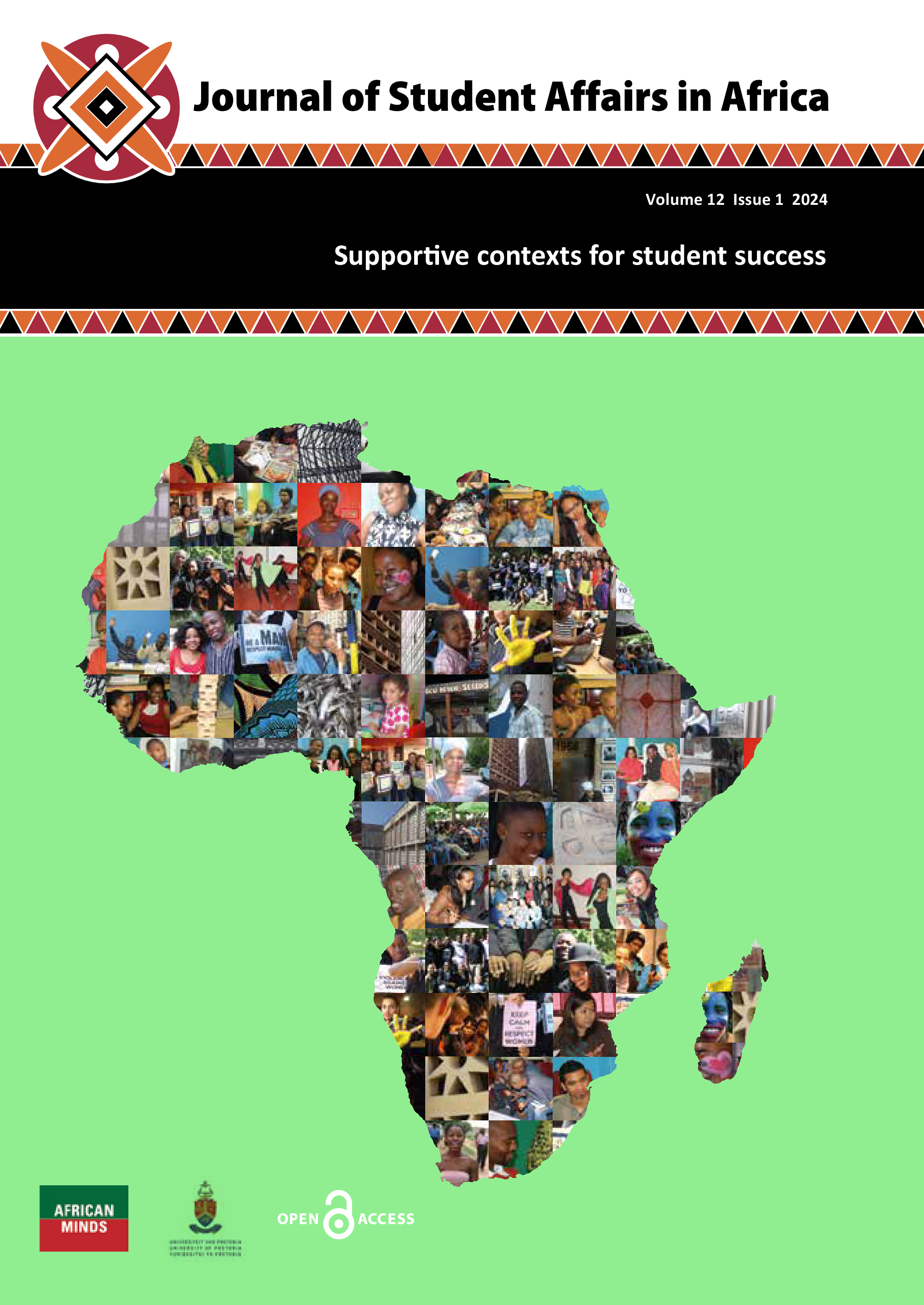The role of the Muslim Student Association at a South African university campus in promoting a sense of belonging, community service and a student-centred environment
DOI:
https://doi.org/10.24085/jsaa.v12i1.4928Abstract
Higher education institutions, unlike high schools, can be a very isolating environment for students due to the great diversity of students. Many students experience a sense of ‘not belonging’ and demoralization due to the lack of social interactions with the vast number of students in the institution’s community. Student orientations are offered to first-year students within their faculties to provide a general welcome to students. However, student orientations are inadequate for students to find their sense of belonging in the greater community. Students feel a sense of belonging based on common interests, religious affiliations, and common belief systems. Several student associations based on these commonalities are established across universities in South Africa to establish a sense of belonging for individual students in the greater community. The Muslim Student Association (MSA) is one such student association that has been established for several years across various South African universities. This reflective practice article is based on the reflections of two lecturers (Muslim and non-Muslim) at a major South African university. The article aims to highlight the importance of the MSA at one campus of a major university, in creating a sense of belonging for students. The reflections encompassed the care-fostering initiatives, such as welcome events, Islamic talks and collaborations on quiz nights, in creating a sense of community (belonging) and collaboration among students. The secondary aim is to analyse the MSA’s effectiveness in community service activities such as bake sales, winter-warmth hamper donations, food drives, volunteer work and fundraisers in creating a leadership and student-centred caring environment which benefits the students and the local disadvantaged communities. The Gibbs reflective model is used to capture the authors’ reflections on the MSA and propose an action research plan to maintain and improve the MSA’s initiatives.
Downloads
Published
Issue
Section
License
Copyright (c) 2024 Naadhira Seedat, Rishen Roopchund

This work is licensed under a Creative Commons Attribution-NonCommercial-ShareAlike 4.0 International License.
Authors who publish with this journal agree to the following terms:
Authors retain copyright and grant the journal right of first publication with the work simultaneously licensed under the Creative Commons Attribution Share-alike 4.0 International License that allows others to share the work with an acknowledgement of the work's authorship and initial publication in this journal.
Authors are able to enter into separate, additional contractual arrangements for the non-exclusive distribution of the journal's published version of the work (e.g., post it to an institutional repository or publish it in a book), with an acknowledgement of its initial publication in this journal.
Authors are permitted and encouraged to post their work online (e.g., in institutional repositories or on their website) prior to and during the submission process, as it can lead to productive exchanges, as well as earlier and greater citation of published work (See: The Effect of Open Access).


